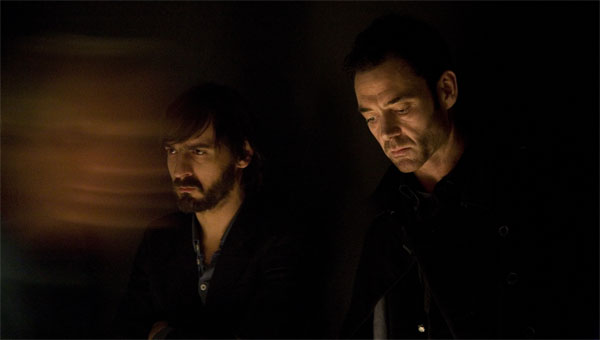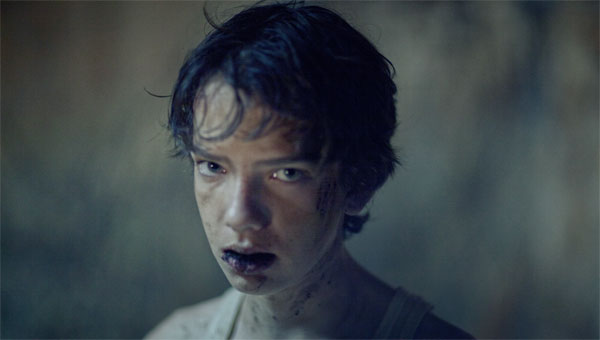Dead Europe Review

The sins of the father are supposedly passed on to his sons.
Not in my book of course, but most certainly in Christos Tsiolkas’ novel Dead Europe and the film this has now been turned into.
Isaac is a proud Greek man who doesn’t know his own country.
His family emigrated to Australia shortly after the end of the Second World War to start their life over, but Isaac’s father Vassily could never really escape from his cryptic past.
One day, Isaac watches his now elderly father talking in tongues and eating dirt from the garden of their family home before getting into his car and driving away.
Turns out it’s the last thing Vassily ever does, as a car accident shortly afterwards ends up killing him.
Traumatised by this loss, Isaac’s mother wants to give her husband a good christian funeral even though Vassily was an atheist; but Isaac refuses, insisting on giving his atheist father the end he wanted.
So Isaac takes a journey back to Greece and a home he’s never known, with Vassily’s ashes along for the ride, so he can bring peace to his father’s soul.
But when Isaac arrives in Europe, he embarks upon a journey that will unravel the real reasons for his father’s departure from these lands and the truth of a curse that Vassily could not escape from.
Dead Europe is an intriguing watch, to begin with.
The performances from a largely unknown cast of this Australian production are strong, the story of Vassily’s supposed curse gripping enough and the cinematography seductively sweeps through European cities as we follow Isaac’s journey into the past.

But the more this story unfolds, the less sense it makes, starting out with gay Isaac’s mutual attraction to his Greek cousin Giulia, the people Isaac meets on his trip, or are they ghosts, and the photos these folk let him take along the way.
The further Dead Europe journeys into its dark heart, the more incongruous it becomes.
Strange ideas begin to pepper Isaac’s story, from the religious hatred of Jews spouted by minor characters to the underground sex trafficking of young refugee boys that Isaac’s prodigal brother Nico, played by Marton Csokas, has become embroiled in.
The resolution at the film’s climax is both unbelievable and unsatisfying, remaining cryptic instead of offering up any real sort of explanation of what went before and robbing it of any real meaning.
The message of Dead Europe is this entire continent has blood on its hands because of the holocaust, a premise I find laughable enough on its own, but especially as it comes from an Australian writer.
As a country that has plenty of blood on its hands from their own chequered racist treatment of aborigine tribes, I’d suggest Tsiolkas would be better served looking a little closer to home for inspiration.
He’d also have a much better chance of understanding his subject matter, as the sins of a father are never the fault of their sons.
Jonathan Campbell